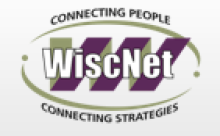By
on

For the rest of the summer, Wisconsin could be the new battleground in the ongoing effort for big companies like AT&T and Time Warner Cable to secure their de facto monopoly positions.
In North Carolina, Time Warner Cable passed a bill effectively preventing communities from building next-generation networks offering services far superior to what TWC offered. Now AT&T and its allies in Wisconsin are trying to stop local governments, universities, libraries, and schools from using a buying coop -- called WiscNet -- to procure better connections than AT&T will provide, at lower prices than AT&T would charge. Why compete when you can outlaw the competition?
WiscNet is essentially a buying coop -- a public/private partnership connecting, among others, University of Wisconsin schools, local governments, libraries, and local public schools. As Barry Orton, Professor of Telecommunications at UW-Madison reminded me, buying coops are "great for buyers, not so great for the sellers."
In this case, sellers like AT&T want to kill the coop so local governments, schools, and libraries, are forced to buy the connections they need from AT&T or other incumbents. This will mean more tax dollars going to AT&T rather than educating students, connecting police stations, and generally allowing public sector institutions to function. From the Wisconsin State Journal:
 Some of the language:
Some of the language:
It has to go through the Legislature, a process that will likely last until August or later. This could be dealt with as soon as Tuesday, June 14. Nonetheless, organizing to defend WiscNet must start immediately (and already has). Public institutions have tight enough budgets without being forced to increase telecom expenditures just to make AT&T happy.
Update: Ugh, I mangled the reference in the title. It should have been "All Your Tax Dollar Are Belong to Us." Apologies.
The motion prohibits the UW System from taking part in WiscNet, the network provider for 450 organizations, including K-12 schools, libraries, cities and county governments.No one has any doubts that AT&T and its allies are squarely behind this measure. To be clear, this has nothing to do with last-mile connections. WiscNet is not providing connections to residents. This is a question of whether local governments can use a network they build and operate collaboratively with other public institutions like UW or whether they have to take whatever AT&T is selling (many small towns only have a single incumbent offering these dedicated access connections). Last year, we wrote about Republican opposition to a broadband stimulus project that is expanding WiscNet to four local communities. On Friday night, that effort was rekindled when some language was inserted into the budget bill.
 Some of the language:
Some of the language:
Telecommunication Services: Prohibit the Board of Regents, the UW System, any UW institution, or the UW Extension, directly or indirectly, from doing any of the following: (a) receiving funds from any award from the National Telecommunications and Information Administration (NTIA) under the U.S. Department of Commerce for the Building Community Capacity through Broadband (BCCB) project; (b) disbursing, spending, loaning, granting, or in any other way distributing or committing to distribute any funds received with respect to, budgeted to, or allocated for the BCCB project; and (c) participating in the planning, organization, funding, implementation or operation of the BCCB project.This section means that Wisconsin, having already returned $23 million in broadband stimulus awards, would return tens of millions more dollars that should be spent on improving broadband access to schools, libraries, police stations, hospitals, etc. The University of Wisconsin Extension Service received two awards from the stimulus -- one to increase digital inclusion and another to expand infrastructure to community anchor institutions that are currently unserved or underserved. In order to receive this award, they had to document that the services needed for schools, libraries, and hospitals (for instance) is not currently available. And they did. These institutions need robust connections, but all across the country, incumbent providers want to offer DSL, cable, and perhaps T.1 lines at inflated prices because they are the only option. They have very little incentive to invest in fiber-optics and lease dark fiber or even provide 100Mbps circuits. But the language goes further...
Prohibit the Board of Regents, the UW System, any UW institution, or the UW Extension from becoming or remaining a member, shareholder, or partner in or with any company, corporation, non-profit association, joint venture, cooperative, partnership, consortium, or any other individual or entity that offers, resells, or provides telecommunications services or information technology services to members of the general public, or to any private entity, or to any public entity other than the Board, the UW System, any UW institution, or the UW Extension.This is fascinating. The ideology could not be more clear: public universities exist to funnel money to AT&T. If car mechanics were as effective as AT&T in lobbying, police departments would be prohibited from repairing their own cars. If Starbucks were as effective as AT&T lobbying, public institutions would be prohibited from owning or using instant-coffee makers. Got others? Submit in the comments! More seriously, this provision could cut make it impossible for the University of Wisconsin, a tremendous University, to participate on Internet2, NLR, and other essential networks for research institutions. There is no logic to this, just an ideology opposed to anything publicly owned and the massive lobbying clout of AT&T. We need to spread the word in Wisconsin: public institutions exist to serve the public, not funnel money to AT&T. Killing WiscNet means more tax dollars going to AT&T rather than educating students, putting police on the streets, or enhancing health care. We will follow up in the near future to get beyond AT&T's talking points and clarify some confusion. In the meantime, you can learn more from WiscNet. The language above is in the budget bill.







